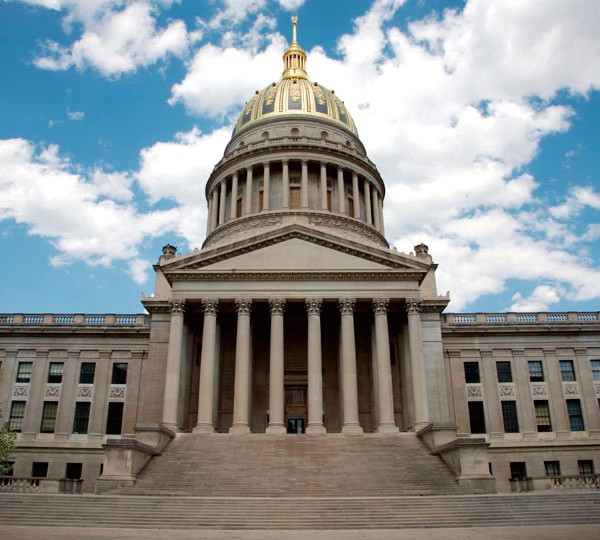CHARLESTON — The state Senate is likely to pass a broad-based and controversial education bill Monday, sending it to the House of Delegates where it will probably undergo still more changes.
That’s all happening against the backdrop of local educators union votes this week, potentially authorizing walkouts over the education bill and how it has rolled out.
The Senate spent five hours debating amendments to the comprehensive education bill on Friday. There have been a couple of significant changes already.
One section of the bill would have allowed the majority membership of local school boards to move property tax levy rates toward the maximum allowed under state law. Senator Randy Smith, R-Tucker, offered an amendment requiring a vote of county residents. That amendment was adopted.
After the bill’s passage from the Senate Education Committee, it was changed to remove an entire controversial section that would have allowed maximum class sizes of 28 students, or even 31 in some instances.
The bill will be on a passage vote during the Senate’s Monday floor session.
Most of the recent key votes on the bill have been 18-16. The Senate has a majority of 20 Republicans, but GOP senators Bill Hamilton and Kenny Mann have been voting with the 14 Democrats.
The bill includes a long-promised pay raise for
educators.
It also opens the way for charter schools and educational savings accounts that would set aside public dollars for private schooling for a certain number of participants.
The bill would also let teachers bank personal days for retirement credit. It would give counties greater latitude in paying some teachers more for in-demand expertise.
The bill would require teachers to sign off annually on union dues. It stipulates that if there’s a work stoppage that closes schools, those involved would not be paid.
It’s all tied together with a non-severability clause, saying that if any part of the bill is struck down then it would all be void.
Democrats note that Gov. Jim Justice promised a pay raise for educators in October with no mention of other strings attached.
“There’s a promise given to the teachers and the service personnel,” said Senator John Unger, D-Berkeley. “It’s obvious this promise has been defaulted on.
“We are playing politics here with a promissory note, with a promise to the people that was out there, by attaching all these different issues onto this one bill, onto the teachers’ and service personnel pay raise to try to get through things that would normally not get through the system on its own merits.”
Republicans in the Senate have cast the bill as offering more flexibility in the education system at all levels.
“It requested higher wages, for sure, as one of the ways in which to stop the teacher shortage, but there are many ways we can help the teacher shortage,” said Senate Education Committee Chairwoman Patricia Rucker, R-Jefferson. “This bill does that.”
Governor Justice has asked for the various aspects of the bill to be considered individually and for the pay raise to run on its own. Responding to questions from reporters, Justice indicated he would strongly consider a veto.
The House of Delegates would get the bill next.
House Speaker Roger Hanshaw issued a carefully-worded statement last week, not exactly embracing the bill as constructed by the Senate.
“We too have been following developments in the state Senate, and will deliberately review any legislation they send our way,” stated Hanshaw, R-Clay.
“Meanwhile, we continue to have discussions with our members and other interested parties about how best to improve our state’s education system. We have and will continue to accept input from all sides — including teachers, parents, administrators, and teacher and service employee unions.”
Hanshaw watched part of the Senate debate from the chamber doorway on Friday afternoon, along with Majority Leader Amy Summers.
“We will carefully review all options and work diligently to build a consensus on how to provide our children with the highest-quality educational experience possible,”Hanshaw stated.
“We know this is a sensitive topic, and passions are heightened on all sides of these issues. It is my hope that we can move forward in a rational and deliberate manner to improve our education system for students, teachers and all involved.”
During a gathering of educators union leaders on Friday, West Virginia Education Association President Dale Lee said he anticipates more deliberative consideration of the bill in the House of Delegates.
“We believe that the House will honor the way a bill is run and honor the process, and we believe it will go through committees and have actual time to vet a bill — not just say ‘Here’s the bill, we’re going to run it tomorrow, we’re going to pass it the next day, forget Finance, go to the Committee of the Whole, we’re gonna do what we want.’ ”
Joe White, president of the West Virginia School Service Employees Association, agreed.
“We have reached out to leadership in the House,” White said Friday. “I feel very confident that they will give us a seat at the table. We never had a seat at the table before.”





